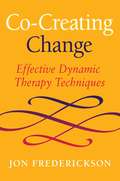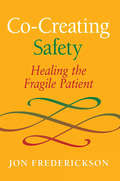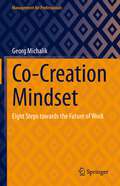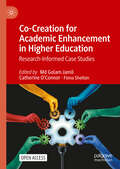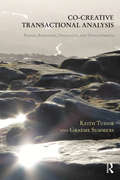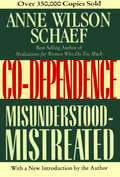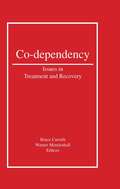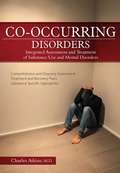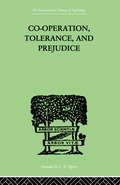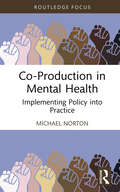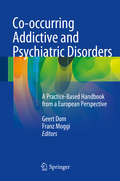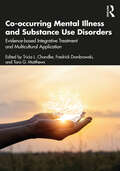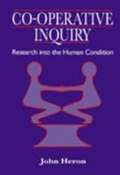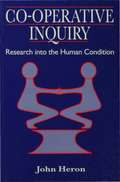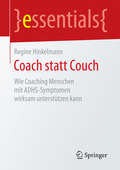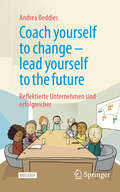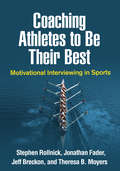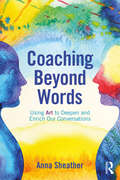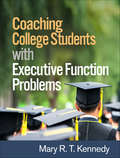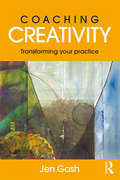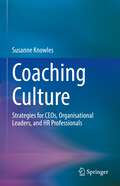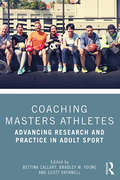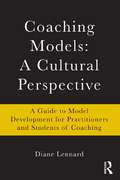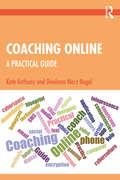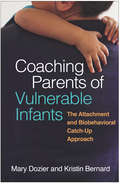- Table View
- List View
Co-Creating Change: Effective Dynamic Therapy Techniques
by Jon FredericksonDo you have patients who are "stuck" and resist change? Would you like to help the 50 percent of patients who drop out of therapy before they have received its full benefits?To be successful therapists must know how to intervene to help patients experience previously avoided feelings. Co-Creating Change provides clear systematic steps for assessing patients' needs and intervening. Every technique is illustrated with a clinical vignette. The vignettes--representing hundreds of therapeutic impasses taken from actual sessions--show the therapists what to say so they can - Assess and respond to patients' need moment by moment. - Help patients develop and keep an effective focus that leads to change. - Help regulate patients' anxiety. - Teach patients to see and let go of their defenses. - Help patients stop resisting and start collaborating in therapy. - Facilitate patients who uses treatment-destructive defenses."This book is a brilliant master class. It demonstrates how to work collaboratively with patients safely compassionately and effectively to achieve successful outcomes."--David Malan DM FRCPsych author of Individual Psychotherapy and the Science of Psychodynamics"An incredibly useful book...Offers crystal clear and highly practical therapy techniques with plenty of transcript examples. Good for new and advanced practitioners of any therapeutic orientation." --Leslie Greenberg PhD author of Emotion-Focused Therapy"This is the clearest and most clinically useful exposition of Davanloo's Short-Term Dynamic Psychotherapy on the market."--Stanley B. Messer PhD Dean and Distinguished Professor Graduate School of Applied and Professional Psychology Rutgers University"Co-Creating Change is an invaluable source book for all therapists wanting to do work that is highly collaborative and deeply affecting."--Patricia Coughlin PhD faculty University of New Mexico and author of Intensive Short-Term Dynamic Psychotherapy
Co-Creating Safety: Healing the Fragile Patient
by Jon FredericksonSome patients are crippled by fear and anxiety. To help the 50 percent of patients who drop out of therapy before they have received its full benefits, therapists must know how to make therapy a safe place. Only if patients feel safe in their body and with the therapist can they feel safe enough to change. Co-Creating Safety provides clear, systematic steps for assessing and meeting patients' needs. Every technique is illustrated with a vignette. Representing hundreds of therapeutic impasses taken from actual sessions, the vignettes show therapists what to say so they can assess and respond to patients' needs moment by moment, help patients develop and keep an effective focus that leads to change, help regulate patients' anxiety, deactivate misperceptions of the therapist and therapy, help patients see and let go of defenses that cause their symptoms, help them overcome their fears and face their feelings, and help them let go of insecure attachment strategies to form a healing relationship.
Co-Creation Mindset: Eight Steps towards the Future of Work (Management for Professionals)
by Georg MichalikCo-creation is a major trend in management, yet no one seems to truly know what it is. With numerous examples and a Q&A section, this book explains exactly what co-creation is and how it differs from other forms of collaboration. To do so, it covers three main topics: innovation, trust and commitment. With regard to the first, co-creation creates a sense of psychological security by treating all participants as equals, the most important prerequisite for finding innovative solutions. In terms of trust, co-creation builds on individual strengths. People who believe in each other’s abilities trust each other. Lastly, co-creation allows people to arrive at win-win solutions, which is the foundation for taking personal ownership.The book is intended for executives, HR and organizational managers, and those responsible for corporate transformation who want to implement co-creation in a very concrete way, as well as anyone interested in co-creation in general.
Co-Creation for Academic Enhancement in Higher Education: Research-Informed Case Studies
by Fiona Shelton Md Golam Jamil Catherine O’ConnorThis open access book focuses on ongoing practices around co-creation at universities, exploring their impact on academic and non-academic activities and making suggestions for realistic changes based on the lessons learned. Contributions explore related actors and actions to understand applied aspects such as the types and forms of co-creation, approaches to making co-creation inclusive and equitable, and ways to use it to shape future university policy and practice. Overall, the scope of the book is multi-layered and spread across the spectrum of higher education, such as institutional leadership, academic development, curriculum design, pedagogic practice, assessment, sustainability and wellbeing.
Co-Creative Transactional Analysis: Papers, Responses, Dialogues, and Developments
by Keith Tudor Graeme SummersCo-creative transactional analysis is an approach to a particular branch of psychology which, as the phrase suggests, emphasises the "co-" (mutual, joint) aspect of professional relationships, whether therapeutic, educative and/or consultative - and, by implication, of personal relationships. The "co-" of co-creative acknowledges the transactional, inter-relational, mutual, joint, and co-operative, as well as partnership. Developed by the authors over some fifteen years, the co-creative approach has found a resonance not only amongst psychotherapists, but also educationalists, consultants and coaches. The book itself represents and reflects the co-creative approach in that it is based on a critical dialogue between the authors themselves about their collaborative and independent work, as well as between invited contributors and the authors.
Co-Dependence
by Anne Wilson SchaefThe explosive bestseller that revolutionized our understanding of the addictive process. With a new introduction addressing the backlash to the co-dependency movement.
Co-Dependency: Issues in Treatment and Recovery
by Bruce Carruth Warner MendenhallCo-dependency has finally become recognized in the late 1980s as a legitimate and a key issue in the chemical dependency field. Most of the literature available on the topic is addressed to the consumer--the co-dependent individual. In Co-dependency, leading therapists share some remarkable insights into the characteristics of the alcoholic home, co-dependents’patterns of responding to the alcoholic, and the particular problems that family members experience as a result of the environment, including fear, shame and guilt, anger, denial, and confusion. Clinical case material is used to illustrate the value of helping co-dependents through education, peer support, outpatient treatment and psychotherapy. Creative solutions for working with lesbian and gay men and children of alcoholics are also featured.
Co-Occurring Disorders: Integrated Assessment and Treatment of Substance Use and Mental Disorders
by Charlie AtkinsDespite an increased awareness of co-occurring disorders, most current treatment paradigms still focus on one problem or the other, leaving much unassessed, unaddressed, or ignored. Until now - and a revolutionary new book from Dr. Charles Atkins that can break the cycles of relapse for those intertwined with substance use and mental illness. Co-Occurring Disorders is a guide to practical assessment and effective treatment approaches for working work with any number of co-occurring disorders. This step-by-step approach, demonstrated through diverse case studies, gives you the tools you need to improve and track your clinical outcomes. This is a must-have resource for both the rubber-meets-the-road clinician, who wants effective strategies and a clear direction for treatment and recovery, and the administrator who creates interventions at the system level with attention to regulatory and reimbursement demands.
Co-Operation, Tolerance, And Prejudice: A CONTRIBUTION TO SOCIAL AND MEDICAL PSYCHOLOGY
by Lowy, SamuelFirst Published in 1999. Routledge is an imprint of Taylor & Francis, an informa company.
Co-Production in Mental Health: Implementing Policy into Practice
by Michael NortonThis book examines the recovery principle of co-production within mental health services, defining it as the creation of a space where all stakeholders – including service users, family members, carers and supporters – come together in a partnership to improve all aspects of mental health services. Exploring both the practicalities and complexities of co-production, the book provides detailed analyses of all aspects of the concept in relation to mental health and discusses the growing evidence-base for adopting co-production as a recovery approach within a mental health setting. The book’s chapters outline: the foundational principles in implementing the concept in services; the theories of co-production in and outside of mental health settings; how to translate theory into practice; and examples of implementation. The book also explores the sustainability of co-production and the tensions that are present between the idea of recovery and mental health policy. The volume represents an ideal introduction to the concept of co-production in mental health and will be valuable reading for those researching and working in the area of mental health services and recovery, including nurses, occupational therapists and social workers.
Co-occurring Addictive and Psychiatric Disorders: A Practice-Based Handbook from a European Perspective
by Geert Dom Franz MoggiThis book provides a comprehensive, state of the art overview that covers both the diagnosis and the treatment of dual disorders - joint psychiatric and substance use disorders associated with a worse outcome and disease progression than single psychiatric or addictive disorders. The book is designed to be highly relevant to clinical work and the organization of care systems and meets the real need for a European perspective on dual disorders that takes into account the realities of European treatment organization. All chapters have been written by European authors on the basis of existing European treatment programs or guidelines and European research. The book will be invaluable for all health professionals working in mental health and addiction care, who are increasingly confronted with patients suffering from dual disorders.
Co-occurring Mental Illness and Substance Use Disorders: Evidence-based Integrative Treatment and Multicultural Application
by Tricia L. Chandler Fredrick Dombrowski Tara G. MatthewsThis textbook details how mental health and addiction are interconnected through childhood trauma, how this affects neurobiology and neuropsychology, and the need for an integrated whole-person treatment for those of diverse backgrounds to enhance treatment outcomes. Using an integrative pedagogy, the book helps readers broaden their understanding of co-occurring disorders through case studies, learning objectives, key terms, quiz questions, suggested resources, and references. By linking to previous knowledge and suggesting practical applications, each chapter provides clear direction for learning more about each treatment approach, diagnosis, and population discussed within the multicultural and biopsychosocial perspective. Co-occurring Mental Illness and Substance Use Disorders will help graduate students in both substance use and mental health counseling make sense of integrative treatment with co-occurring disorders.
Co-operative Inquiry: Research Into The Human Condition
by John HeronThis is the first book to provide a comprehensive account of co-operative inquiry: a way of doing research with people where the roles of researcher and subject are integrated. Co-operative inquiry is a distinctive and wide-ranging form of participative research in which people use the full range of their sensibilities to inquire together into any aspect of the human condition. This book offers both an extensive exploration of its theoretical background and a detailed practical guide to the methods involved. Topics covered include: a critique of established research techniques; the underlying participative paradigm of co-operative inquiry; the epistemological and political aspects of participation; different types of co-operative inquiry and the range of inquiry topics; ways of setting up inquiry groups and enabling their development; four kinds of inquiry outcome and the primacy of the practical; the main stages of the inquiry cycle, highlighting key issues for practice at each stage; and special skills and procedures used for enhancing validity.
Co-operative Inquiry: Research into the Human Condition
by John HeronThis is the first book to provide a comprehensive account of co-operative inquiry: a way of doing research "with" people where the roles of researcher and subject are integrated. Co-operative inquiry is a distinctive and wide-ranging form of participative research in which people use the full range of their sensibilities to inquire together into any aspect of the human condition. This book offers both an extensive exploration of its theoretical background and a detailed practical guide to the methods involved. Topics covered include: a critique of established research techniques; the underlying participative paradigm of co-operative inquiry; the epistemological and political aspects of participation; different types of co-operative inquiry and the range of inquiry topics; ways of setting up inquiry groups and enabling their development; four kinds of inquiry outcome and the primacy of the practical; the main stages of the inquiry cycle, highlighting key issues for practice at each stage; and special skills and procedures used for enhancing validity.
Coach statt Couch: Wie Coaching Menschen mit ADHS-Symptomen wirksam unterstützen kann (essentials)
by Regine HinkelmannRegine Hinkelmann stellt ein ADHS-Coaching-Konzept vor, das dazu beitragen soll, Adulte mit ADHS-Symptomen in ihrem lebens- und arbeitsweltlichen Umfeld zu unterst#65533;tzen und zu st#65533;rken. Dazu legt sie einen an der ADHS-Symptomatik orientierten sechsphasigen Prozessverlauf sowie symptomspezifische Interventionen zur Bearbeitung der Kardinalsymptome dar und ordnet diese anhand einer Beschreibung der relevanten Beraterkompetenzen in einen Gesamtkontext ein. Obwohl es sich bei der Aufmerksamkeitsdefizit- und Hyperaktivit#65533;tsst#65533;rung (ADHS) um eine Symptomatik handelt, die mittlerweile einer breiten #65533;ffentlichkeit bekannt ist, konnten klassische medikament#65533;se und psychotherapeutische Behandlungsformen das verst#65533;rkte Auftreten von ADHS nicht verhindern. Insbesondere im Bereich der Arbeitswelt sehen sich die Betroffenen gro#65533;en Herausforderungen und Schwierigkeiten ausgesetzt.
Coach yourself to change – lead yourself to the future: Reflektierte Unternehmen sind erfolgreicher
by Andrea BeddiesChange ist in aller Munde, Transformation aktuell umso mehr. Und häufig wird beklagt, dass keine*r sich verändern will. Wenn überhaupt, soll es lieber „die anderen“ treffen. Wo kommt dieses Vorurteil her? Coach yourself to change eröffnet, basierend auf der Arbeitspsychologie, einen strategischen Blick auf individuelle Veränderung und auf die Veränderung der gesamten Organisation und vor allem darauf, wann und warum sie vorangetrieben wird und gelingt und wann und warum eben nicht.
Coaching Athletes to Be Their Best: Motivational Interviewing in Sports (Applications of Motivational Interviewing)
by Stephen Rollnick Jonathan Fader Jeff Breckon Theresa B. MoyersThe measure of a great coach is bringing the best out of athletes. This is the first guide to motivational interviewing (MI)--the proven approach to harnessing the power of conversations to build relationships and trust--for coaches, sport psychologists, training and rehabilitation specialists, and other affiliated staff. Revealing why conventional ways of giving feedback and addressing conflict are often counterproductive, the book presents tried-and-tested methods for getting through to athletes and helping them to thrive. Leading sport psychologists and MI experts--including MI cofounder Stephen Rollnick--provide effective strategies to fire up motivation, promote ownership of personal goals, address problem behavior on and off the field, enhance performance, and improve teamwork. Included are step-by-step examples and inspiring stories from coaches at all levels. Purchasers get access to a Web page where they can download and print the book's reproducible quick-reference sheets on key MI skills. This book is in the Applications of Motivational Interviewing series, edited by Stephen Rollnick, William R. Miller, and Theresa B. Moyers.
Coaching Beyond Words: Using Art to Deepen and Enrich Our Conversations
by Anna SheatherIn Coaching Beyond Words: Using Art to Deepen and Enrich Our Conversations, Anna Sheather presents a practical guide for those seeking to incorporate art in their own coaching practice. Complete with case studies and art created by clients, Anna explores how coaching with art connects clients to a deeper level of personal awareness and understanding, which in turn leads to meaningful shifts in personal growth, development and fulfilment. Anna offers the coach an exciting and transformative way to work with their clients by bridging the gap between art and coaching. She covers how to introduce creative approaches, how to support creativity and how to work with the art produced, opening enriching coaching conversations with clients. Anna combines her personal experiences with research that underpins her practice, exploring the benefits of the interdisciplinary nature of art therapy and neuroscience by looking at the field of hemispherical lateralisation to help understand why coaching with art works so effectively. The book also provides a comprehensive guide of how to prepare an art-based coaching session, including contracting, an overview of types of exercises, key principles and approaches to facilitating the image making process, overcoming barriers with coachees and guidance on managing oneself in the process, including managing boundaries. Coaching Beyond Words is the first book to provide an in-depth look at the importance and practicality in interweaving coaching and art, and it forms a complete guide to context, theory and practice.Coaching Beyond Words will appeal to coaches in practice as well as any art therapist seeking to expand their practice into coaching. Additionally, it would be of interest to creative professionals looking to incorporate coaching theory.
Coaching College Students with Executive Function Problems
by Mary R. Kennedy Mckay Moore SohlbergAlthough executive function difficulties are often addressed in school-age children, there are few resources showing how to help these individuals when they are older. This book presents a dynamic coaching model that helps college students become self-regulated learners by improving their goal-setting, planning, time management, and organizational skills. Ideal for use with students with attention-deficit/hyperactivity disorder (ADHD), learning disabilities, acquired brain injury, and other challenges, Mary R. T. Kennedy's approach incorporates motivational interviewing and emphasizes practical problem solving. User-friendly features include numerous concrete examples, sample dialogues, and print and online resource listings. In a large-size format for easy photocopying, the book contains 21 reproducible forms. Purchasers get access to a Web page where they can download and print the reproducible materials for repeated use.
Coaching Creativity: Transforming your practice
by Jen GashCreativity and coaching are two of the buzzwords of the twenty-first century and yet little is known about how to coach creativity. In business, education, health and many other fields there is an increasing acknowledgement of the importance of innovation and recognition of what is lost when creativity is lacking. In Coaching Creativity, Jen Gash explores the history, science and practice of "creativity" by artists, makers and creators, translating this into practical advice for coaches. The book investigates the concept of creativity and examines the theories surrounding it from psychological, neurological and biological perspectives. It then takes a more practical look at the "doing" of creativity and explores the use of creativity in therapeutic settings. A model of coaching creativity is presented which acknowledges its diverse and individual nature. The book also includes are tools, case studies and ideas for coaching creativity including contributions from a wide range of coaches. Coaching Creativity will be inspiring reading for coaches of all backgrounds, including business and organisational coaches, those in training, and others in the helping professions looking to enhance their practice. It is essential reading for all coaches who aim to support clients’ creative goals and use creativity in their own practice. It fills important gaps in current coach education and practice.
Coaching Culture: Strategies for CEOs, Organisational Leaders, and HR Professionals
by Susanne KnowlesThis book reports on an empirically-based, theoretical model of coaching culture development over four stages. This is the first model of coaching culture development that goes beyond the listing of stages and strategies in the academic literature based on pracademic experience. It is a dynamic, process model which informs practitioners of how to develop a coaching culture in organisations. Each stage is explained in terms of how coaching is conceptualised by organisational leaders, the motivation for introducing coaching into the organisation, the organisational members who are the recipients of coaching, and those who are involved in delivering the coaching at each stage. The model contributes to the academic literature and the growing calls for coaching to become a discipline in its own right.
Coaching Masters Athletes: Advancing Research and Practice in Adult Sport
by Bettina CallaryThis book is a foundational resource for all coaches and student coaches who are, or who plan to be, working with Masters athletes. This athletic cohort typically includes adults over the age of 35 years who are registered for sport programs/events, and who invest in training to improve themselves for competitions that range from recreational to championship caliber. As the boom in Masters sport continues worldwide, coaches are increasingly tasked with the development and support of adults’ quality sport experiences, and the implementation of strategies to foster skill acquisition and to facilitate their pursuit of competitive goals. This book presents what is different about coaching Masters athletes and prompts coaches to expand their scope of practice beyond traditional knowledge associated with youth or younger adult cohorts. It is essential for coaches to understand the psychological and social considerations that are unique to coaching adult sports-persons and Masters athletes, and that can be adapted to adults whose training and preparation for competition is quite varied. Coaching Masters Athletes: Advancing Research and Practice in Adult Sport explores the research and practice specific to planning to coach Masters athletes and divulges what is known about distinctive considerations for delivering coaching interventions to this cohort, expanding on coaches’ abilities to influence adults’ personal development, as well as their own coach education through Masters Sport. Readers and students of Coaching, Physical Activity, Health Psychology, Sport Leadership and Exercises Science will gain valuable applied perspectives grounded in best practice research on how to coach one of the fastest-growing sporting cohorts, to promote quality adult sport, and to keep adult sports-persons engaged and active as they age.
Coaching Models: for Practitioners and Students of Coaching
by Diane Lennard"In addition to providing an extensive analysis of strategies for changing performance and the factors that can impact coaching effectiveness, this book offers what may be a unique value: instead of promoting one approach as the best, Dr. Lennard guides readers through a highly customized process of developing our own individualized coaching model. As a result of the book's thought-provoking activities, I strengthened my own sense of personal authenticity and saw new ways to coach and collaborate fully with employees who may have very different perspectives." — Tita Theodora Beal, Learning & Development, Pfizer, Inc. "This is a wise book. The essential take-away is simple and profound. Develop, refine, and apply your own (as in ownership) personalized coaching model. Much is provided; nothing is imposed. Readers are invited to reflect on unique and defining experiences, strengths, values, perspectives and style and to begin creating their own ‘work in progress.’ Coaching Models will be a compelling read for experienced coaches and new coach practitioners alike." — Bethene LeMahieu, Ed.D.; Professional Coach and Conversation Conservationist Coaching Models: A Cultural Perspective encourages and assists students and practitioners of business coaching to develop and apply their own coaching models. The entire field of coaching will benefit from having coaches who use their models to continually improve their practice. The first part of this book presents the model development process by looking at the relationship among culture, beliefs, and behavior in the coaching context. It explains the importance of identifying cultural factors that influence the way coaches approach coaching interactions, and their coaching models. The second section provides coaches with information and strategies for developing personalized coaching models, applying them to specific contexts, and reflecting on their interactions to refine their core coaching practices. The third part describes the evolution of the author’s own coaching model—the Performance Coaching Model—and illustrates how one coach incorporates unique perspectives and sets of skills, knowledge, and experience in her coaching practice.
Coaching Online: A Practical Guide
by Kate Anthony DeeAnna Merz NagelTranslating traditional coaching methods and competencies for use in the online world, this informative and timely guide shows coaches how to transform their face-to-face practice into one that utilises technological means of communication with clients, mentors, and everyone else associated with their practice. The book offers up-to-the-minute practical and ethical information from two world-expert coaches, leaning on their combined 50 years of experience and study. It covers the practice of online coaching via email, chat, audio/telephone and video methods, as well as the ethics of online coaching (including an ethical framework), case material, supervision, mentoring and training, and a look into the future of the coaching profession in light of technological developments and the culture of cyberspace. Whether you are a coach-in-training or established Coaching Master, this book is an accessible and invaluable tool for taking and maintaining your coaching services online.
Coaching Parents of Vulnerable Infants: The Attachment and Biobehavioral Catch-Up Approach
by Mary Dozier Kristin BernardThis is the authoritative presentation of Attachment and Biobehavioral Catch-Up (ABC), the widely disseminated, evidence-based home-visiting intervention for parents of infants who have experienced adversity, such as homelessness, neglect, or institutional care. Vivid case examples--including one that runs throughout the book--illustrate the importance of responsive parenting for helping children develop secure attachments and key regulatory capacities. Over the course of 10 coaching sessions incorporating extensive in-the-moment comments and video feedback, ABC enhances parents' ability to follow their children’s lead, nurture when children are distressed, and avoid frightening behaviors. In a readable, accessible style, chapters describe adaptations for different populations (high-risk birth parents, foster parents, parents who have adopted internationally, and parents of toddlers) and provide guidelines for training and implementation.
